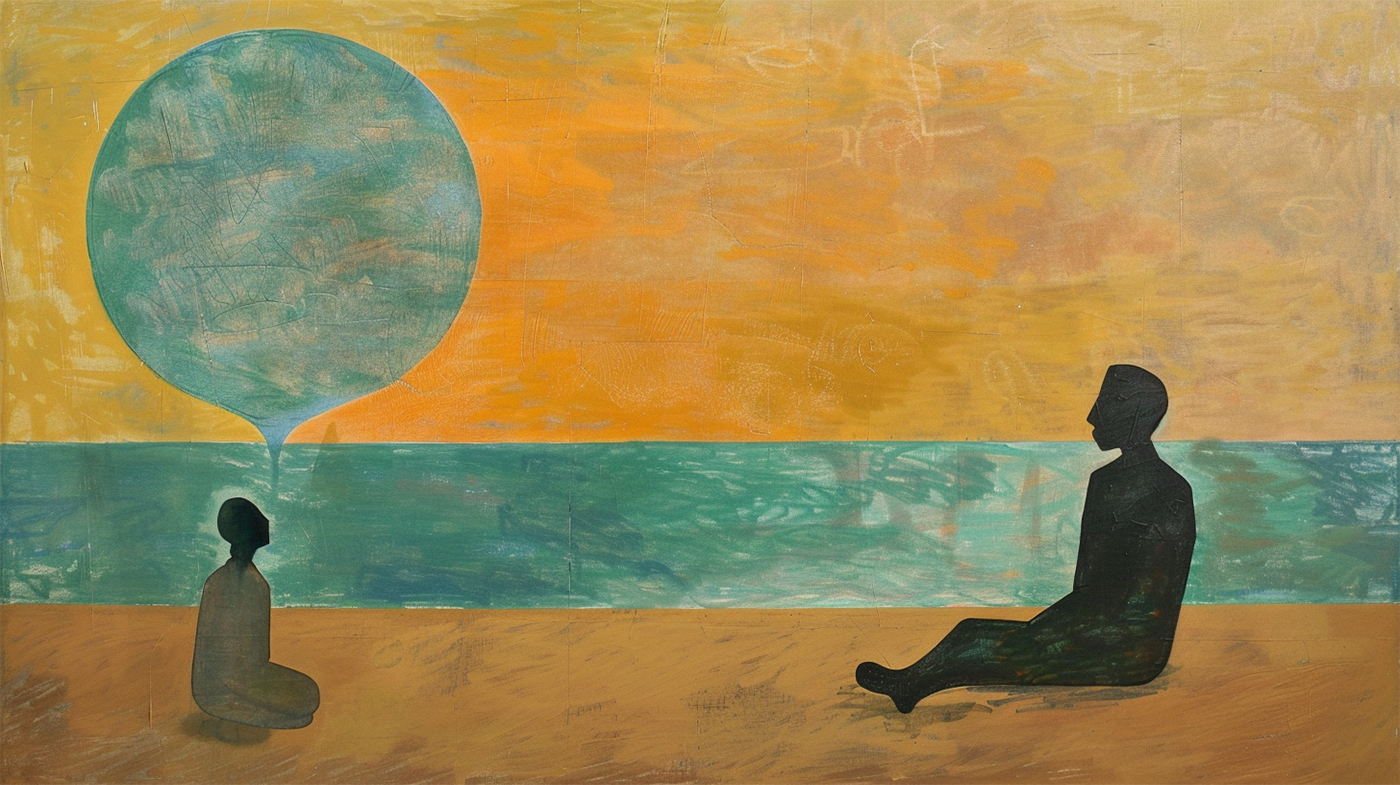Going up against a senior lawyer is often a daunting and stressful experience. It is especially so if we are fresh lawyers. Even if we are not fresh lawyers, there is anxiety and it lies in the apparent gulf between experience, reputation, and learning between the senior and ourselves. It has a touch of David and Goliath about it.
Even for someone of my seniority i.e., 22+ years at the bar, which I would put down as ‘middling seniority’, there are occasions when I experience a spot of anxiety when I am going up against a senior lawyer. The difference between then and now is that I manage that anxiety far better than when I started out.
I know some of you may think, bloody hell, 22+ years at the bar is a long time! Why does he think himself of only middling seniority? Because I see it like this: Say we start our career as an advocate and solicitor at 25 years of age. A Malaysian’s average life expectancy is 76 years of age. Assuming we live and practice law that long, I’d peg a full career at the bar as 50 years, more or less, give or take a few.
So 22+ years, for me, is about halfway to the finish line.
We must be very careful about using duration at the bar as a proxy indicator of a lawyer’s competency, credibility, and courage. It is not. Years at the bar simply indicate how many years you existed as a practicing lawyer in Malaysia. Years at the bar may imply you were actively in practice, accumulated the necessary and relevant experience, continually improve your ability, and are competent at what you do. But years at the bar is no guarantee of any of that.
Years at the bar don’t matter if you haven’t accomplished anything meaningful with it. It’s what we do with those numbers that count. Never be fooled by raw numbers. There are some lawyers who have been at the bar longer than me but practice as if they were still in their first year of practice. These are the senior freshies.
What that means is not all senior lawyers achieve the level of ability, experience, knowledge, courage, and competency expected of them given their respective seniority. So there is a spectrum of quality to senior lawyers, ranging from appallingly bad to magnificently good. The rarity of such lawyers mirrors their ability. The bad are common, the great less so. There will always be this quality spectrum any time we categorize lawyers according to whatever criteria.
When I say going up against a senior lawyer, I mean those on the latter end of the scale. When I say senior lawyer, I mean the heavies, the big kahunas, the goombas with the heavy rep sheet. They are the ones with the litany of groundbreaking cases, the ear of the bench, the brilliant arguments, the deft strategies, command of authority. The ones who were cutting their teeth while we were still soiling and wetting our diapers. The ones who make us tremble or want to soil or wet our robes with their presence.
They are like the ultimate bad boss in a video game. The ones you have to play and lose several times over before you figure out the strategy to beat them, and even then just barely. They have a response to everything. They know all our law-fu moves and the counter. They see our check and mate us in the next move.
That’s who I mean when I say going up against a senior.
There is no glory or even pleasure going up against a senior freshie. They often are an embarrassment to our profession. They are like the illegitimate child everyone knows about but is embarrassed to acknowledge familiarly. They elicit more pity than argument. Their performances are commonly a masterclass of what not to do.
They are the ones we must watch for both education and amusement. Savour how they spin an argument out of their ignorance of both facts and law. Regale in how quickly they resort to name-calling and ad hominem attacks. Be awed by their appalling, spoilt-brat behaviour in court, which the court countenances if not encourages, because of their years at the bar. Some senior fellas think being angry is an argument.
I once defended a hospital against a medical negligence claim. We acted for the hospital which was sued vicariously for an alleged negligent diagnosis by its doctor.
In most cases, a claimant had to bring expert evidence to prove a negligent misdiagnosis. You needed a doctor to explain to the court why the defendant doctor got it wrong. You cannot simply bring medical results and ask the court to infer the negligence. But that’s precisely what happened.
The claimant’s lawyer, a very senior one, boasted to me on the day of trial before it began, ‘I will prove all of you were negligent without expert evidence! This case is very clear.’ I thought he was foolhardy, if not negligent. But it was not my case nor my problem. ‘I look forward to that, Dato’,’ I replied. He lost. Badly. The court ruled the claimant had not proved a case in court.
In my first year of practice, I was introduced by a lawyer friend to a senior lawyer. It was in the old Jalan Raja criminal magistrates courts. The lawyer himself was formerly a magistrates court prosecuting officer for donkey’s years. He was a short dark curly-haired man who had more showmanship than substance to him. I remember what he boasted to me because of my obsession with books:
‘I am the type of lawyer that doesn’t read books. Who needs books? You waste time reading books. Everything I learn is from observation. A real lawyer is one that uses his mouth. You kena pandai cakap! Ha! The judge listens to those that pandai cakap.’
I am pretty sure I looked at him askance. I never sought him out for anything. Both these instances are my parables about critically considering what senior lawyers (actually, anyone) tell us about our profession or legal practice, especially when we don’t know any better. If it doesn’t square with our own first principles (for example, mine is: reading is good, not reading is not good), then we must treat it with great caution, if not reject it outright.
I remember how anxious, nervous, and stressed out I was early in my practice whenever I found myself pitted against a senior lawyer on the other side. It would drive me to intensify my preparations.
If I were going up against my peer, I would read an authority once or twice; but if I were up against a senior lawyer, I would read it at least three or four times. I would re-read my draft two or three times more than I would be compared to a ‘normal lawyer’. I would be sweating psychologically and physically fidgeting a bit more on the trial or hearing day. I remember my hands or legs trembling just that bit more when I was on my feet. The worse part is the sense of dread that used to fill me.
That dread and intensification are distractions to getting our work done as we intended to. I’d like to think that that dread and intensification can be managed with two instructions.
The first is: Focus on your case, your points, and your arguments.
Remember that that is what you are there for – to make your point and then sit down. As long as you have made your point to the judge, your job as a lawyer is done.
A trial or hearing is not pageantry for lawyers, but their arguments for their clients. The court is there to decide who has the better argument, not who the better lawyer is. The court is interested in the soundness of your argument, not your personal qualities.
If and when you feel dread, a lack of confidence, or cluelessness about how to manage your emotions, go back to familiarize yourself with your arguments.
Focusing on your case has the effect of reducing the time you spend thinking out who you are going up against. Filling our head and attention with our case and arguments helps reduce anxiety about the situation. The senior lawyer is not dominating your thoughts. It leaves less room for the darkness of our minds to whittle at our confidence with negative thoughts.
So we arrive at the second instruction: Avoid thinking about how you think you look when you do what you do.
Much of our anxiety and dread stems from the negative way in which we think about ourselves going up against a senior lawyer.
We think we will perform poorly, we will embarrass ourselves, the senior lawyer will slay our case with their ability and argument, the judges will think us shysters for raising such poor arguments, and the list goes on and on. Our mind continually generates a multitude of ways we will lose and embarrass ourselves.
We must train ourselves to avoid these thoughts or to distract ourselves from them. These thoughts are not helpful and subtract instead of adding to your performance. Not everything we think is good for us, these are one of those times.
A helpful way to do that is to go back to the first instruction.
These two instructions have been helpful to me in dealing with the dread and intensification of effort that may arise when I am going up against a senior lawyer.
I hope you find it of use too.
Related Posts
- Evolution of the Future Lawyer | From the Atelier
From The Atelier Razie Alfiedan was commissioned for this piece. He wrote in after he…
- Evolution of the Future Lawyer
What the future lawyer (and with it legal practice and legal firms) will look like…
- Lawyers and 'Lawyers' | From the Atelier
I saw Delia Razak's profile on Instagram and liked her style of art. I looked…
- Consultation Fees and the Embarrassed Lawyer
My good friend Shan and I were once at a post-hearing meal in the company…
- Standing for the Bar Council Elections 2021/22
Last month, I submitted my nomination papers for the Bar Council 2021/2022 elections. I am…








2 thoughts on “Going up against a senior”